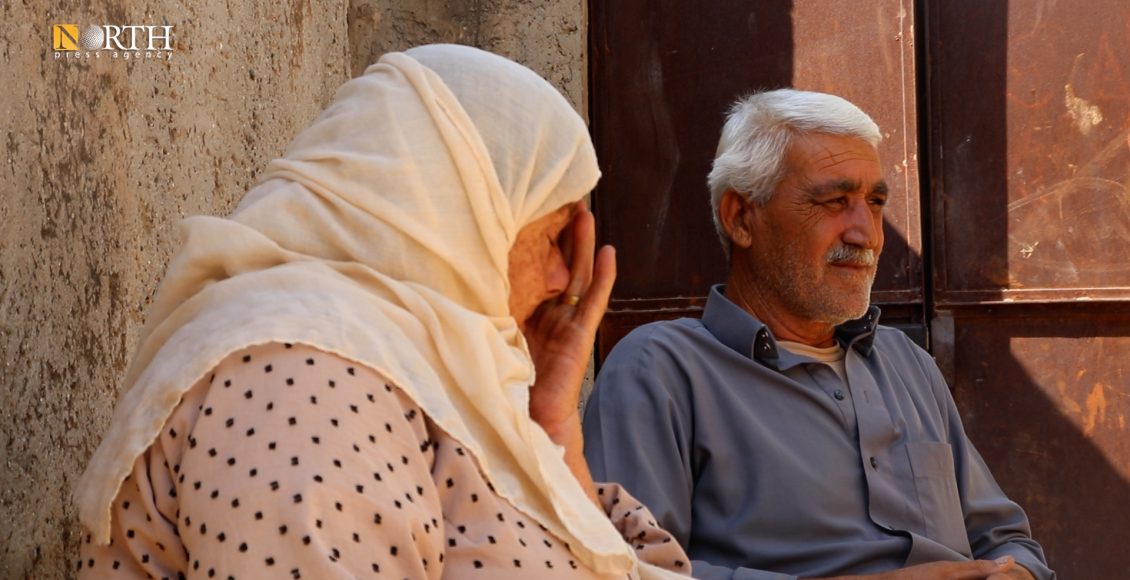Displaced Syrian family faces ongoing hardship after displacement
By Muhammad al-Qadi
RAQQA, Syria (North Press) – Ahmad Muslim, a displaced resident originally from the city of Tel Abyad in northern Syria, has endured relentless displacement since 2019.
Muslim fled his home in Tel Fander, a village west of Tel Abyad, following a Turkish military operation. Now settled in Raqqa, Muslim has been forced to move seven times in the past five years.
The situation for Muslim and his family is bleak. “We wonder how we will end up if life is this harsh at our age,” he laments.
Their current circumstances reflect the broader suffering of many displaced Syrians. Muslim’s family has lost everything: their home, farmland, and the olive trees that once sustained them.
After years of uncertainty, they now live in a cramped, dilapidated two-room house in one of Raqqa’s poorest neighborhoods, paying $50 a month in rent.
This instability has taken a significant toll on their health. 60-year-old Muslim is still recovering from a stroke, while his wife, Aino, struggles with limited mobility after being injured in a car accident during their escape.
The couple’s five children, all married and living separately, are unable to provide consistent help. They now rely on small monthly contributions from their daughters just to cover rent.
Muslim and Aino feel abandoned, having received no substantial assistance from either international NGOs or the Autonomous Administration of North and East Syria (AANES).
For families like theirs, returning to their village seems increasingly distant. Their former home in Tel Fander is now occupied by another family, tied to a militant of the Turkish-backed armed opposition factions, aka the Syrian National Army (SNA), that controls Tel Abyad and Sere Kaniye (Ras al-Ain) areas in addition to areas in Aleppo and Idlib countryside.
“This is the second time we have been displaced,” says Aino. “The first time was because of ISIS and Hayat Tahrir al-Sham (HTS), and now we have been driven out again by Turkey and the SNA.”
The pain of losing their home twice weighs heavily on them. Aino dreams of returning to sit under the olive trees outside her house. “I just want to go back and die there,” she says, her voice filled with longing.
Their current life, marked by poverty and isolation, contrasts starkly with the stability they once enjoyed. “In our village, we were self-sufficient and did not need anyone’s help,” Aino recalls.
Tel Abyad and the nearby city of Sere Kaniye have been under Turkish occupation since 2019, following Turkey’s “Peace Spring” military operation. The operation aimed to drive the Syrian Democratic Forces (SDF) away from the Turkish border, citing “national security” concerns.
As a result, the region has been almost entirely emptied of its original Kurdish and Yazidi inhabitants. Today, only about 50 elderly Kurds remain in Sere Kaniye, while the once-thriving Yazidi population of 3,000 has disappeared, according to local sources.
Muslim’s story mirrors the broader tragedy of displaced Syrians, caught between ongoing conflict, loss, and a fading hope of ever returning home.

